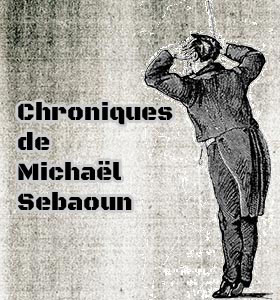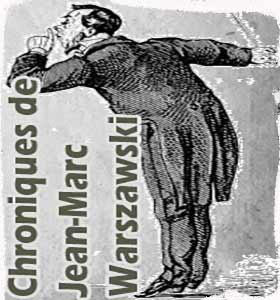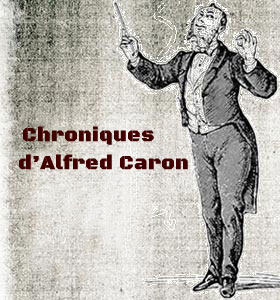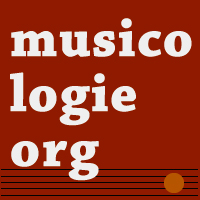Depression in Popular Music
June 26-27, 2025, Paris
International Conference,
Call for Papers
Sorbonne University, Pierre Louis Institute of Epidemiology and Public
Health (iPLesp), Paris
An interdisciplinary research conference that aims to address the diverse creative impact of depression on popular music relative to a global rise in clinical depression among young people and its associated social inequalities alongside a widespread cultural *depathologization* of depression, while bridging humanistic and epidemiological perspectives on mental health.
Link to conference website and CfP
Link to Sorbonne/iPLesp announcement
Call for papers
In recent years, “depression” has become an undeniable focal point in
global popular music, whether (1) as a concept explicitly and loosely invoked by musicians and fans across diverse languages – often alongside the equally charged terms “anxiety” and “trauma” – to disclose, destigmatize, celebrate, glamourize, and/or normalize feelings of melancholy, loneliness, and despair; (2) as a category of musical expression with distinct stylistic markers and audio-visual conventions associated with key musical personae and key genres, subgenres, and microgenres; (3) as an explicit pretext for listening to popular music as a form of “mood-regulation”; and increasingly, (4) as an organizational theme on music streaming platforms and video sharing apps in connection with mood and activity-based playlists.
In many ways, this ongoing *vernacularization *of depression in popular music speaks to a statistical global rise in clinical depression among young people and its associated social inequalities (Daly 2022), widespread moral panic around the designation of depression as a “public health crisis” and “leading cause of disability worldwide” (WHO 2023; UN 2017), and intense cultural debate over what “depression” is. To that end, popular music arguably blurs a biomedical conception of depression as a common and serious mood disorder in accordance with prevailing clinical definitions (DSM-5; ICD-11), with a generational sensibility that is unbounded by diagnosis and pathology (Holmes 2023) in accordance with the social model of disability (Siebers 2008; Rashed 2019) and an understanding of depression as symptomatic of the structural inequalities of neoliberal capitalism (Berlant 2011; Cvetkovich 2012; Fisher 2011), rather than as an disorder of the mind. Unequivocally, depression is transforming the aesthetic and structural landscape of popular music, just as popular music is transforming the ways people conceive of, communicate about, and tend to their mental health amid significant disparities of mental health care.
We invite *350-word proposals* for *20-minute-long research presentations* (by max 3 scholars) addressing this rich musical phenomenon from diverse topical and interdisciplinary vantage points with the aim of bridging humanistic, psychological, and epidemiological perspectives on mental health. This includes, but is not limited to, critical approaches in popular music studies, disability studies, Mad studies, trauma studies, affect theory, gender and sexuality studies, critical race and ethnic studies, critical public health studies, the psy-disciplines, and epidemiology. We are especially keen to explore the following sets of questions from an interdisciplinary perspective:
Expressive strategies:
What are some of the semantic strategies – whether in Anglo or non-English language popular music – and corresponding musical and visual devices musicians use to disclose and aestheticize depression and other related mental states? How are these stylistic conventions gendered and racially-coded? Who are some of the key musical figures and what are the main genres/subgenres/microgenres associated with depression?
Definitions and conceptual tensions:
What is the relationship between the musicalization of depression and
*clinical* depression? How does popular music speak to wider cultural and ideological debates about what depression is? How are disability studies, Mad studies, trauma studies, affect theory, and other relevant humanistic fields uniquely equipped to analyze the representation of depression in popular music, whether in tandem with or in contrast to a biomedical framework?
Social inequalities:
How does popular music reflect the diverse and widely documented social determinants of mental health? How does it reflect the social inequalities associated with the lived experience of depression with respect to gender, sexuality, race, ethnicity, class, nationality, geopolitics, etc.? How might it shed new light on implicit bias in diagnostic frameworks and statistical reporting on depression?
Cultural implications:
How is depression transforming the aesthetic dynamics of popular music and its resulting categorization? How does it impact relationships between musicians, critics, and fans? What are some of the ways popular music is transforming public health discourse and institutionalized forms of mental health care, and what are the ethical implications of this paradigm shift?
Submission deadline and instructions:
*February 15, 2025 by 12:00 a.m. European Central Time* via online submission form.
Applicants are required to upload a single document containing a: - presentation title and 350-word presentation abstract - 100-word bio(s)
For inquiries, please email Jessica Holmes
Applicants will be contacted with a decision by March 15, 2025.
Conference organizers: Jessica A. Holmes, Associate Professor of Musicology, University of Copenhagen 4EU+ Visiting Professor, Sorbonne University iPLesp (Spring 2025) iPLesp Social Epidemiology, Mental Health and Addictions Research Team led by Judith van der Waerden, Senior Research Associate, French National Institute of Health and Medical Research (INSERM).




 À propos - contact |
S'abonner au bulletin
| Biographies de musiciens | Encyclopédie musicale | Articles et études | La petite bibliothèque | Analyses musicales | Nouveaux livres | Nouveaux disques | Agenda | Petites annonces | Téléchargements | Presse internationale | Colloques & conférences | Collaborations éditoriales | Soutenir musicologie.org.
À propos - contact |
S'abonner au bulletin
| Biographies de musiciens | Encyclopédie musicale | Articles et études | La petite bibliothèque | Analyses musicales | Nouveaux livres | Nouveaux disques | Agenda | Petites annonces | Téléchargements | Presse internationale | Colloques & conférences | Collaborations éditoriales | Soutenir musicologie.org.
Musicologie.org, 56 rue de la Fédération, 93100 Montreuil. ☎ 06 06 61 73 41.
ISSN 2269-9910.

Dimanche 13 Avril, 2025

 13 avril 2025
13 avril 2025